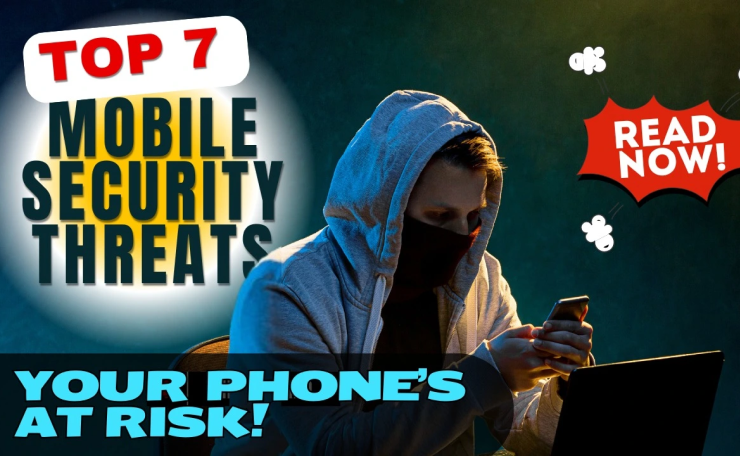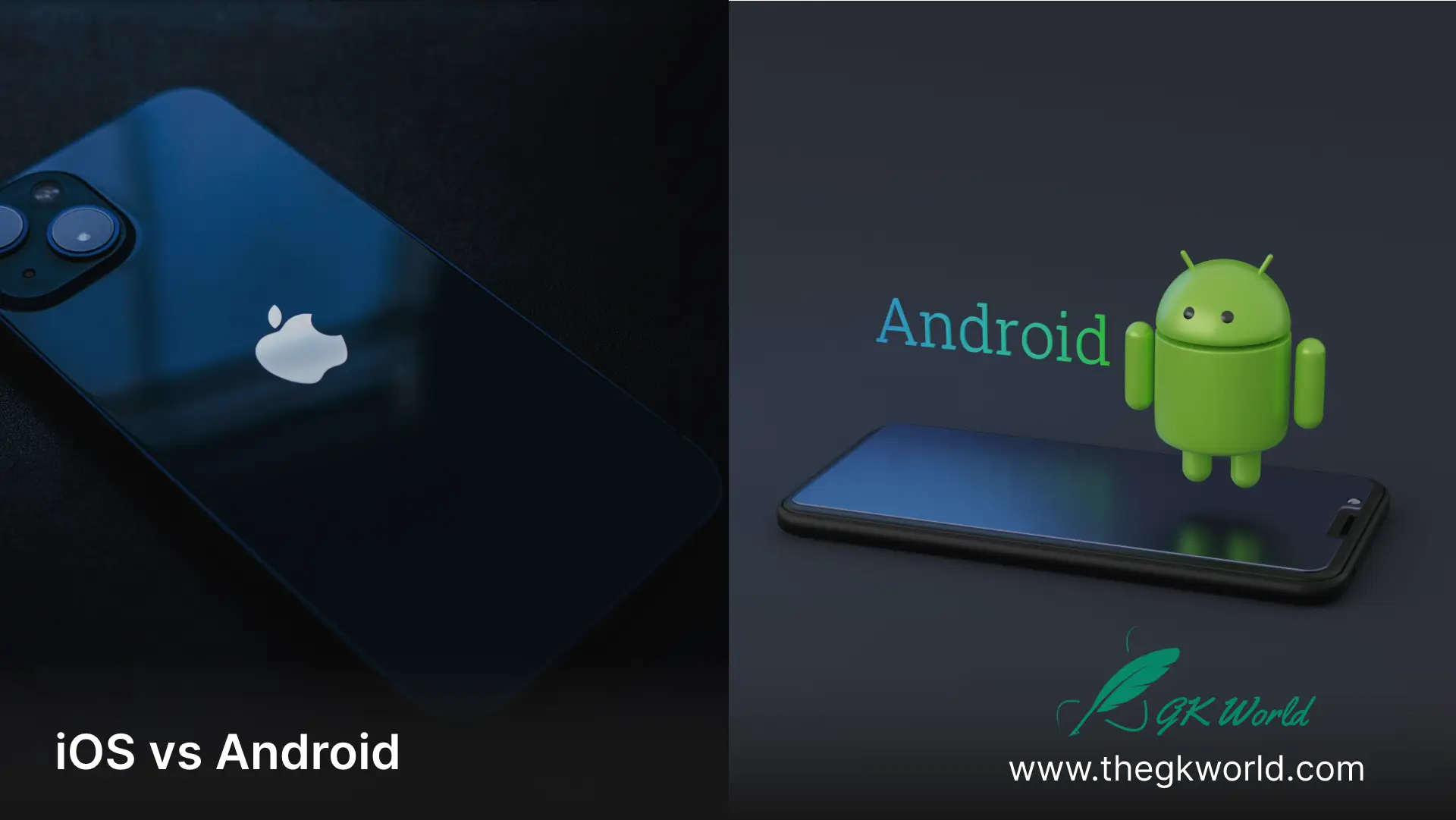
Let’s talk about your phone. You’re probably reading this on it right now. It’s your lifeline. But here’s the kicker: while you’re scrolling, hackers are scheming. I’ve seen people lose savings, get locked out of their lives, or even have their identities stolen—all because of sneaky mobile threats.
Below, I’m breaking down the 7 most dangerous mobile security risks everyone misses (and how to shut them down). No jargon, just real talk.
1. “Free” Apps That Rob You Blind- Mobile Security Threats
You’ve seen them—flashy apps promising free premium features or “exclusive” wallpapers. Don’t bite. Last month, my cousin downloaded a “PDF scanner” from a shady site, and within hours, her Instagram account started spamming her contacts with crypto scams.
Turns out, the app hid malware that hijacked her phone. Android users, listen up: Android mobile security threats thrive because the platform’s flexibility lets sketchy apps slip through the cracks.
What to do: Only download apps from Google Play or the App Store. If an app asks to access your camera or contacts for no reason? Delete it. Yesterday.
Discover how to slash your phone bill with Go Smart Cell Phone Plans—learn insider tips to save big in our latest guide!
2. Phishing Texts That Look Exactly Like Your Bank’s
“Your account is locked! Tap here to fix it.” These texts are so convincing now, they even copy your bank’s logo. My neighbor fell for one last week—he clicked a link that looked like his credit union’s site, and poof: $2,000 gone.
This isn’t rare. Phishing is the most common mobile device security threat, and it’s getting harder to spot.
Pro move: Call your bank directly if you get a sketchy message. Never trust links in texts.
Discover how Go Smart Mobile Phones enhance communication with cutting-edge features for modern living. Read more about Go Smart Mobile Phones here.
3. Public Wi-Fi: Hackers’ Favorite Playground

That “Free Starbucks Wi-Fi” isn’t just free—it’s a buffet for hackers. I learned this the hard way when I logged into my email at an airport. Within hours, someone tried resetting my PayPal password. Why? Because public Wi-Fi lets hackers snoop on everything you type.
Fix it now: Get a VPN. It’s like a cloak of invisibility for your data. I use NordVPN, but even free ones work better than nothing.
Wondering if Samsung phones are the best choice? Dive into our detailed analysis to find out.
4. “I’ll Update Later” = Inviting Hackers Over

Are you guilty of hitting “remind me tomorrow” on software updates? Same. But here’s the reality: updates fix security holes. Take “StrandHogg,” a flaw in older Android versions that lets hackers mimic real apps to steal passwords. Millions ignored the update, and guess what? Their data got swiped.
Stop procrastinating: Set your phone to auto-update. You’ll never have to think about it again.
5. Apps That Sell Your Location to Strangers
That weather app you love? It might be tracking where you live, work, and vacation—then selling that data. A friend’s fitness app once shared her jogging routes with third-party advertisers. Creepy, right? This isn’t rare: 40% of free apps sell user data behind the scenes.
Fight back: Go into your settings and revoke unnecessary permissions. Does a solitaire app need your location? Nope.
6. Lost Phone = Identity Theft Goldmine
Imagine dropping your phone at a concert. If your lock screen is “1234” or your birthday, thieves can crack it in seconds. A coworker’s phone was stolen last year, and the thief drained her Venmo, posted cringe stories on her Snapchat, and emailed her boss pretending to quit.
Lock it down: Use a Face ID or a fingerprint scanner. And enable “Find My Phone” to wipe your data remotely if it’s gone.
7. SIM Swaps: When Hackers Steal Your Number
This one’s wild. Scammers call your phone carrier, pretend to be you, and transfer your number to their SIM card. Suddenly, they’ve got your texts, and calls, and can reset your passwords. A guy in Texas lost $50k this way because the hacker bypassed his bank’s two-factor authentication.
Red flags: If your phone suddenly loses service, call your carrier ASAP. Add a PIN to your account—it’s an extra layer of protection.
Real Story: The App That Tanked a Small Business
A local bakery I know got hacked because an employee downloaded a fake “inventory management” app. The malware spread to their payment system, stealing customer credit card details. The result? A lawsuit, a ruined reputation, and a $30k fine. The owner told me, “I never thought a tiny app could do that.”
Lesson: Train your team (or yourself) to spot fake apps. If it looks off, it probably is.
FAQs:
1. “What exactly are mobile device security threats?”
Think of them as digital pickpockets. These are risks like malware, phishing scams, unsecured Wi-Fi, or even losing your phone. Hackers use these to steal your data, money, or even your identity. For example, leaving your phone unlocked at a café? That’s like handing a thief your wallet.
2. “How do mobile app security threats happen?”
Ever download a “free” game that asks for access to your contacts? That’s a classic. Some apps hide malware or sell your data to third parties. One guy I know downloaded a “fitness tracker” that secretly sent his location to advertisers. Always check app permissions—if it feels sketchy, ditch it.
3. “What’s mobile threat security, and why should I care?”
It’s your phone’s bodyguard. Mobile threat security includes tools like antivirus apps, VPNs, and biometric locks (think fingerprint scans). Without it, you’re inviting hackers to raid your photos, emails, and bank apps.
4. “What are the biggest threats to mobile security in 2024?”
Phishing texts pretending to be your bank (they look scarily real).
SIM swapping: Hackers hijack your phone number to reset passwords.
Outdated apps: Ignoring updates leaves doors wide open for attacks.
Public Wi-Fi: Free networks = free data for snoopers.
5. “Why are Android mobile security threats worse than iPhone?”
Android’s open ecosystem lets you customize more, but that freedom comes with risks. Third-party app stores and delayed updates (thanks, Samsung!) make Android phones a hot target. For instance, the “StrandHogg” bug let hackers mimic legit apps to steal data.
6. “Can you share a case study about mobile security disasters?”
Sure! A friend’s startup got hacked because an employee downloaded a fake “project management” app. The malware spread to their payroll system, leaking employee SSNs and client contracts. Cost? $200k in fines and a shattered reputation. Lesson: Train your team to sniff out shady apps.
7. “What’s a common mobile device security threat I might face daily?”
Phishing texts. Seriously, my aunt nearly lost $1,500 last week because a text claiming to be from Amazon said her account was “locked.” She clicked the link and poof—her credit card got drained. If a message feels off, call the company directly.
8. “How can I protect data on my mobile device without being a tech genius?”
Lock it down: Use face/fingerprint ID—not “1234.”
VPNs on public Wi-Fi: NordVPN or Surfshark encrypt your data.
Update everything: Yes, even that annoying iOS update.
Remote wipe: Enable “Find My Device” so you can nuke your data if it’s stolen.
9. “What’s the easiest way to boost phone security?”
Stop ignoring updates! I used to hit “remind me later” too—until my buddy’s phone got hacked through an old Instagram app. Now, I auto-update everything. Also, delete apps you don’t use. That random flashlight app from 2018? It’s probably selling your location.
10. “I saw a Coursera/Quizlet question: ‘What is a common mobile device security threat?’ What’s the answer?”
Phishing attacks. They’re the digital equivalent of a con artist knocking on your door. Hackers send fake texts/emails to trick you into handing over passwords or cash. If you’re prepping for a course or quiz, remember: that phishing is public enemy #1.
Final Tip: Treat Your Phone Like Your Front Door
Would you leave your house unlocked? Probably not. So why leave your phone unprotected? Be paranoid. Question every app. Avoid shady links. And for the love of all things holy, update your phone.
Your turn: Ever dealt with a mobile security disaster? Share your story below—let’s save each other some headaches!
Still, stressed? Share your mobile security horror stories below—let’s learn from each other!
Sources:
- Cybersecurity & Infrastructure Security Agency (CISA)
- National Institute of Standards and Technology (NIST)
- Federal Trade Commission (FTC) – Mobile Security








3 Comments